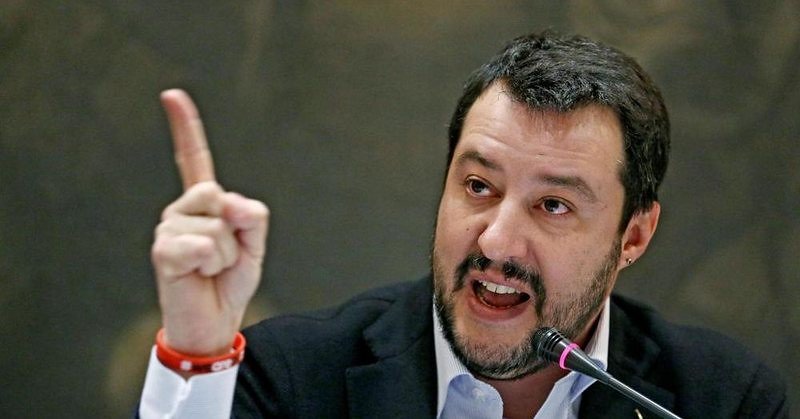Salvini Goes on Trial for Kidnapping Migrants
Italian politician Matteo Salvini went on trial for kidnapping on October 23, more than two years after he refused to let a boat full of 147 migrants dock in Italy and forced them to stay on board. (Radio Alfa)
Matteo Salvini, the head of Italy’s right-wing Lega Nord party, went on trial for kidnapping in the Sicillian city of Palermo on October 23. Prosecutors argue that by preventing migrants from disembarking a boat for more than two weeks in 2019, Salvini effectively kidnapped them.
The NGO Open Arms rescued 147 people from boats off the coast of Libya and brought them to Italy to disembark in August 2019. Salvini, who was the minister of the interior at the time, refused to allow the ship to dock. Conditions on board were filthy, and some passengers jumped overboard to escape. After 19 days, a judge eventually ordered Salvini to allow the passengers off the ship in Lampedusa, an Italian island near the coast of Tunisia.
The Italian Senate voted in June of 2020 to lift Salvini’s parliamentary immunity and allow him to face charges, a move that he requested himself so that he could clear his name in court. Salvini has characterized the trial as a politically motivated attack and argued that the decision to block the boat involved other government officials besides himself. Before the trial began, he tweeted a picture of a cage used to confine defendants in the courtroom, with the caption, “This is the courtroom of the Palermo prison. The trial wanted by the left and by the fans of illegal immigration begins: how much will it cost the Italian citizens?”
In May, a judge in Catania threw out charges from a similar incident in 2019. The trial will include witnesses from the Italian government, NGOs, and even Hollywood. The actor Richard Gere is set to testify against Salvini, as Gere visited the blocked ship during the 2019 standoff.
Salvini is a central figure in Italy’s right-wing politics and in Europe’s populist and anti-immigration movements. If convicted, Salvini could face up to 15 years in prison and become ineligible for public office. Though the number of refugees entering Italy by sea has dropped sharply since its peak in 2016, there have still been more than 50,000 such arrivals this year, and debates surrounding immigration are at the forefront of public discourse in Italy. As one of the closest EU members to North Africa, Italy’s policies heavily impact the ability of asylum seekers to enter Europe.

